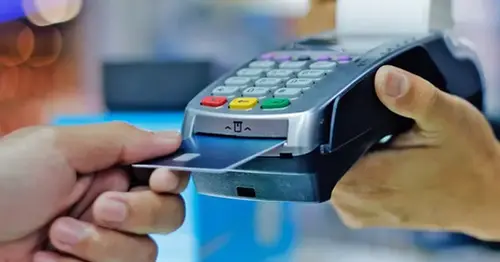
Credit card interest rates hit record high
The cost of carrying a balance on your credit card is now the highest it's been in more than 30 years.
According to survey data from Bankrate.com, the average credit card interest rate has climbed to 19.04%.
"Bankrate has been surveying credit card rates since 1985, and this eclipses the previous all-time high of 19.00% from July 1991," Bankrate chief financial analyst Greg McBride wrote on Wednesday.
The new high coincides with the Federal Reserve raising its key federal funds rate to a level not seen in more than a decade as it fights persistent inflation. By making it more expensive to borrow, the central bank is hoping to slow the economy and ease upward pressure on prices.
Increasing the federal funds rate cranks up what's known as the prime rate. That's the interest rate that banks charge their most creditworthy customers. Currently, it sits at 7%. The final annual percentage rate for a credit card is determined by the prime rate plus a bank's margin for lending to a given customer.
The new average represents a substantial increase from the 16.3% average rate for credit cards seen at the beginning of the year. According to Bankrate, for someone carrying a $5,000 balance on their credit card — which is the current national average — making just the minimum payment each month at that rate would cost you $5,517 in interest over 185 months, or about 15 years. At today's 19.04% rate, you would pay $6,546.
"You don’t feel it on a monthly basis, but minimum payments are a trap," Bankrate Senior Industry Analyst Ted Rossman said. He added: "If you as an individual have credit card debt with an interest rate near 20%, that needs to be priority — it's three, four, five times higher than other forms of debt."
Yet even as racking up large credit card balances can ultimately affect credit scores, and as the total amount of all credit card balances in the U.S. remains at record levels, delinquencies remain low, Rossman said.
"Consumer confidence is low, people are not feeling good about the economy — yet they're keeping up," he said. "Perhaps it is excess savings built up during pandemic. I also think the job market is stronger than people are giving it credit for.
While wages in most cases are not keeping up with inflation, he said, banks are talking about a return to 2019 levels for delinquencies and defaults.
Source: https://www.nbcnews.com/business/consumer/credit-card-interest-rates-hit-record-high-rcna56373






